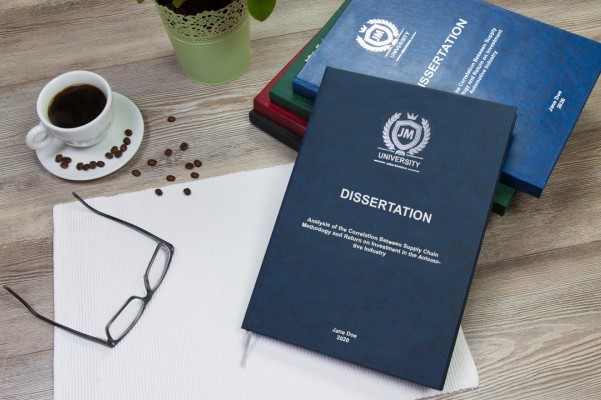Dissertation topics in law can include a variety of legal issues. A law dissertation can analyze a specific legal issue, such as the death penalty or gun control. It can also look at a broader legal topic, such as the role of the law in society or the history of the legal system.
Many law dissertations focus on a particular legal case or statute. For example, a student might choose to research the history of the Affordable Care Act or analyze the Supreme Court’s decision in Roe v. Wade. Others might choose to look at how the law has changed over time or how it is interpreted in different parts of the world.
Students who choose to write a law dissertation can also explore a variety of theoretical topics. For example, they might examine the concept of justice or analyze the nature of law itself. They might also look at specific legal principles, such as the rule of law or the presumption of innocence.
No matter what topic they choose, students writing a law dissertation must be sure to use a variety of sources. They should include case law, statutory law, and scholarly articles. They should also make use of other forms of evidence, such as interviews or survey data.
When choosing a topic for their law dissertation, students should keep in mind the scope and length of the project. They should also make sure that they have a good understanding of the topic and are able to write a quality paper on it.
What is the best topic for dissertation?
Choosing a dissertation topic can be one of the most challenging parts of the process, particularly if you are unsure of where to start. However, there are a few things that you can do to make the process a little bit easier.
First, it is important to think about what you are interested in. When you are passionate about a topic, it will be easier to stay motivated throughout the process. Additionally, choosing a topic that you are interested in will allow you to focus on your research and avoid getting overwhelmed.
Another thing to consider when choosing a topic is the scope of the project. Will your topic be manageable within the timeframe that you have allotted? Additionally, is the topic broad enough to allow for exploration and analysis, or is it too specific?
Finally, it is important to consult with your advisor to get their input on potential topics. They will likely have a good understanding of what is feasible and can provide you with some helpful resources.
Once you have narrowed down your options, it is time to start drafting a proposal. This document will outline your topic, the research that you have conducted thus far, and your proposed methodology. Be sure to consult with your advisor to ensure that your proposal is in line with the requirements of your program.
Once your proposal has been approved, it is time to get started on your dissertation. Be sure to set smaller goals along the way and to take breaks when needed. When you are finished, you will have a completed document that you can be proud of!
What is the best topic for a law?
When it comes to choosing a law topic, there are many things to consider. The most important factor is what interests you. You should also think about the potential for future research and job opportunities in the field of law.
Some of the most popular law topics include criminal law, contract law, and torts. These are all important areas of law that are constantly changing. They also offer many opportunities for research and job growth.
Another popular law topic is constitutional law. This area of law deals with the interpretation and application of the Constitution. It is a complex and fascinating topic that is constantly evolving.
If you are interested in international law, there are many areas to explore, such as human rights, trade law, and environmental law. These are all important topics that have a significant impact on the world.
Whatever topic you choose, make sure that you are passionate about it. The field of law is challenging, but it can also be rewarding. With the right topic, you can make a real difference in the world.
How do you write a dissertation outline for a law?
A dissertation outline for a law degree can seem like a daunting task, but with a little planning and organization, it can be a manageable project. The first step is to come up with a topic for your dissertation. Once you have a topic, you can begin to outline your dissertation.
A good dissertation outline will include an introduction, a literature review, a methodology section, and a conclusion. You will also need to include chapters on your specific topic. Make sure to include a detailed timeline for completing your dissertation so you can stay on track.
The introduction should introduce your topic and provide a brief overview of what you will be discussing in the dissertation. The literature review should summarize the existing literature on your topic. The methodology section should describe how you conducted your research. The conclusion should summarize your findings and discuss their implications.
Make sure to consult with your advisor to make sure your dissertation outline is on track. He or she can help you make sure you are covering all of the necessary topics and that your dissertation is well-organized.
What makes a good title for a dissertation?
There is no single answer to the question of what makes a good title for a dissertation. However, there are a few things that you can consider when creating your title.
Your title should be concise and easy to understand. It should also accurately reflect the content of your dissertation.
Your title should be interesting and engaging, and it should make readers want to learn more about your work.
Finally, your title should be accurate and specific. It should accurately reflect the main points of your dissertation.
How long should a law dissertation be?
When it comes to writing a law dissertation, there is no one-size-fits-all answer to the question of how long it should be. Some dissertations may be as short as 10,000 words, while others may be as long as 50,000 words or more. However, there are a few things to keep in mind when deciding how long your law dissertation should be.
First, you should make sure that you allow enough time to complete your dissertation. Depending on the complexity of the topic and the amount of research you need to do, writing a law dissertation can take anywhere from several months to a year or more.
Second, you should make sure that your dissertation is long enough to thoroughly explore the topic you have chosen. Your dissertation should not be simply a summary of the law that already exists; it should be an in-depth exploration of a specific legal issue.
Finally, you should make sure that your dissertation is properly formatted and well-written. Even a dissertation that is 50,000 words long can be poorly written and difficult to read if it is not formatted correctly.
In short, there is no one answer to the question of how long a law dissertation should be. However, there are a few things you can keep in mind to help you make that decision.
Can you choose your dissertation topic?
When it comes to dissertation topics, many students feel like they are at the mercy of their professors. However, this is not always the case. In fact, you may be able to choose your own dissertation topic with your professor’s approval.
There are a few things to keep in mind when choosing a dissertation topic. First, make sure that you have enough information and resources to write a quality paper. Second, make sure that your topic is relevant to your field of study. Finally, make sure that your topic is interesting to you.
If you can’t think of a topic that meets all of these criteria, don’t worry. You may be able to come up with a topic with the help of your professor or by doing some online research.
Choosing a dissertation topic can be a daunting task, but it is important to remember that you are not alone. There are plenty of resources available to help you choose the right topic and write a successful paper.
Do you write a dissertation for a law degree?
When pursuing a law degree, many students wonder if they are required to write a dissertation. The answer to this question depends on the school and/or program you are attending.
Some law schools require students to complete a dissertation in order to graduate. Others do not require a dissertation, but allow students to write one if they wish. Still, other law schools do not require or allow dissertations, but offer other options, such as a thesis or scholarly paper.
If you are required to write a dissertation for your law degree, the process will likely involve researching a particular legal topic and writing a lengthy paper on your findings. This paper will be submitted to a committee of professors who will then evaluate it.
If you are not required to write a dissertation, you may still want to consider doing so. Writing a dissertation can be a great way to demonstrate your knowledge and expertise in a particular area of law. It can also be helpful in preparing you for a career in law.
Ultimately, the decision of whether or not to write a dissertation for a law degree is up to you. If you are unsure whether or not you are required to do so, be sure to contact your school or program coordinator for more information.
What are the top 5 most researched topics?
There is no definitive answer to this question as it depends on the specific research interests of individual scholars. However, some topics are more commonly researched than others. Here are five of the most commonly researched topics in academia:
1. History 2. Psychology 3. Biology 4. Sociology 5. Economics
What is a good dissertation topics in education?
A good dissertation topic in education should be relevant to today’s society and have the potential to make a real impact. It should also be something that you’re passionate about, so you can maintain motivation throughout the process of writing your dissertation.
Some possible dissertation topics in education include:
1. The impact of technology on learning: This could include a study of the impact of different types of technology on student learning, or the use of technology in the classroom.
2. The use of standardized tests in education: This could include a study of the impact of standardized tests on student learning, or the use of standardized tests to assess teacher performance.
3. The effect of homework on student achievement: This could include a study of the effect of homework on student grades, or the amount of homework students should be assigned.
4. The benefits of extracurricular activities for students: This could include a study of the benefits of extracurricular activities for student academic achievement, or the benefits of extracurricular activities for student social development.
5. The challenges of teaching in a multicultural society: This could include a study of the challenges of teaching students from different cultural backgrounds, or the best ways to teach students from different cultures.
6. The impact of early childhood education: This could include a study of the impact of early childhood education on student achievement, or the benefits of early childhood education.
7. The use of technology in higher education: This could include a study of the use of technology in higher education, or the impact of technology on student learning.
8. The challenges of online learning: This could include a study of the challenges of online learning, or the benefits of online learning.
9. The impact of teacher training on student achievement: This could include a study of the impact of different types of teacher training on student achievement, or the impact of teacher training on teacher retention.
10. The future of education: This could include a study of the future of education, or the potential changes that could be made to the education system.
Is 2 Months enough to write a dissertation?
Is 2 Months enough to write a dissertation?
It depends.
First, let’s clarify what we mean by “a dissertation.” Generally, a dissertation is a lengthy, original research project written by a graduate student in order to earn a doctoral degree. So, when we ask “Is 2 months enough to write a dissertation?” we’re asking, “Is 2 months enough time to complete a lengthy, original research project?”
The answer to that question depends on a number of factors, including the scope of the project, the availability of resources, the level of difficulty, and the level of effort put in by the student. Generally speaking, 2 months is not enough time to complete a dissertation unless the student is already familiar with the topic and has access to all the necessary resources.
That said, there are a few ways to shorten the timeline for completing a dissertation. One is to choose a topic that is relatively easy and doesn’t require a lot of original research. Another is to focus on completing a draft rather than a finished product. And finally, it’s always helpful to ask for help from professors, classmates, or online resources.
What are topics of law?
Topics of law can vary greatly, as different cases and scenarios arise that need to be addressed by the legal system. However, some broad topics of law that may be encountered include contract law, criminal law, constitutional law, family law, tort law, and property law.
Contract law governs the formation and enforcement of contracts between parties. It includes the examination of issues such as the offer, acceptance, and consideration involved in a contract, as well as the remedies available to parties in the event of a breach.
Criminal law concerns the prosecution and punishment of criminal offences. It includes the definition of criminal offences, the establishment of criminal liability, and the punishment of offenders.
Constitutional law is the area of law that deals with the interpretation and application of the Constitution of a country. It includes issues such as the separation of powers, the rule of law, and the rights and freedoms of individuals.
Family law governs the legal relationships between family members. It includes issues such as marriage, divorce, and child custody and support.
Tort law regulates the rights and obligations of individuals who have been injured or damage by the wrongful conduct of another. It includes remedies such as damages, injunctions, and specific performance.
Property law governs the acquisition, use, and disposal of property. It includes issues such as the acquisition of title, the transfer of title, and the enforcement of security interests in property.
What is a good legal research topic?
When looking for a legal research topic, there are a few things to keep in mind. The topic should be relevant to your practice area, and it should be something that you can reasonably research in a short amount of time. You also want to make sure that the topic is interesting to you, so that you will be motivated to do the research.
Some good legal research topics include:
• The history of the law • Theimpact of the law on everyday life • The role of the judiciary in the legislative process • The impact of technology on the law • The impact of globalization on the law • The role of the legal profession in society
What are the hot topics in the area of the law?
There are a number of hot topics in the area of law. Some of the most pressing include:
1. Gun control and the Second Amendment.
2. Civil rights and police brutality.
3. Immigration law and the Trump administration’s policies.
4. The #MeToo movement and sexual harassment in the workplace.
5. The opioid epidemic and drug law reform.
How do I find a good law review topic?
Finding a good law review topic can be a daunting task. There are so many potential topics to choose from, and it can be hard to know where to start. Here are a few tips to help you find a good topic for your law review article.
First, think about what you are interested in. What are some topics that you are passionate about? What are some legal issues that you are interested in learning more about? When you are interested in the topic, you will be more likely to stick with it and produce a high-quality article.
Second, do some research. What are some recent legal decisions or cases that have been in the news? What are some hot-button legal issues that are currently being debated? When you are aware of the current legal landscape, you will be better equipped to write about a relevant topic.
Third, ask around. Talk to your professors, classmates, and other lawyers to get suggestions for good law review topics. They may have some ideas that you have never thought of before.
Finally, brainstorm. Sit down and write down a list of all of the potential topics that come to mind. Once you have a list of topics, you can start to narrow them down and find the one that is right for you.
Finding a good law review topic can be difficult, but it is definitely worth it in the end. When you are passionate about the topic and you do your research, you can produce an article that is both informative and well-written.
How do you structure a law dissertation?
A law dissertation is a complex and lengthy piece of writing that requires a lot of planning and organisation. In order to structure your dissertation effectively, you need to first understand what it is and what it is supposed to achieve.
A law dissertation is a critical evaluation of a legal topic or issue. It is not simply a regurgitation of facts or a summary of the law. Instead, it is an in-depth analysis of a particular legal topic, backed up by relevant evidence and argument.
Your dissertation should be structured in a clear and logical manner, with each chapter building on the one before it. The following is a suggested structure for a law dissertation:
1. Introduction
This should introduce the topic of your dissertation and outline the main arguments that you will be making.
2. The law in question
This section should provide a detailed analysis of the law in question, including a review of the relevant case law and legislation.
3. The problems with the law
This section should identify any problems with the law, such as its inconsistency or its inability to deal with new challenges.
4. The potential solutions
This section should propose potential solutions to the problems identified in the previous section.
5. Conclusion
This should summarise the main arguments of your dissertation and draw conclusions about the law in question.
How do you write a good dissertation outline?
A dissertation outline is a plan that helps you to put your ideas into a logical order. It can also help you to ensure that you have covered all of the important points in your dissertation.
There are a few things to keep in mind when creating your dissertation outline:
1. Make sure that your outline is clear and easy to follow. The reader should be able to understand your main points without difficulty.
2. Make sure that your outline is well-organized. The points should be grouped together in a logical manner.
3. Make sure that your outline is comprehensive. It should cover all of the important points in your dissertation.
4. Make sure that your outline is up-to-date. It should reflect the latest version of your dissertation.
Creating a good dissertation outline can be a challenging task. However, if you follow the above tips, you should be able to create a outline that is both clear and concise.
What should be included in a law dissertation introduction?
When writing a law dissertation, the introduction is one of the most important sections. It lays the groundwork for the rest of the paper and introduces the reader to the topic. In order to write an effective introduction, there are a few things that should be included.
The first thing to mention is the purpose of the dissertation. This should be clearly stated and should provide the reader with a general overview of what the paper will be discussing. After the purpose has been outlined, the introduction should then introduce the main topics that will be covered in the paper. It is important to be concise and to provide the reader with a brief overview of each topic.
Finally, the introduction should provide a brief summary of the research that has been conducted on the topic. This should include both primary and secondary sources, and it should give the reader a sense of the current debate surrounding the topic. By providing this information, the reader will have a better understanding of the paper and will be able to appreciate the significance of the research that will be conducted.
What should a dissertation outline look like?
A dissertation outline is a plan for your dissertation. It will help you stay on track and make sure that you include all the necessary components in your dissertation.
There is no one right way to structure a dissertation outline, but there are some common elements that most outlines will include. Your outline should begin with an introduction that explains the purpose and scope of your dissertation. Then, you will need to include a section on your research methodology, as well as a literature review. The body of your dissertation will include your findings and analysis, and the conclusion will summarize your findings and offer your recommendations.
It is important to be flexible when creating your dissertation outline. Your outline should be tailored to the specific topic of your dissertation and the guidelines provided by your supervisor. However, following the general structure outlined above should help you stay on track and produce a high-quality dissertation.



